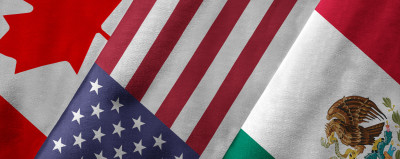
The Canada-United States-Mexico Agreement (CUSMA)



Learn how to properly qualify your products under CUSMA rules and guidelines, how to manage your CUSMA certifications of origin as well as how to implement recordkeeping practices that can withstand an origin audit by CBSA or by U.S. CBP.
The Canada-United States-Mexico-Agreement (CUSMA) has been in effect since July 1, 2020. Many North American importers and exporters intuitively claim the CUSMA preferential treatment without the goods having undergone a thorough origin analysis beforehand, as is prescribed by the CUSMA rules of origin and origin procedures. If you do not fully understand CUSMA, your company could either miss out on profitable tariff reduction opportunities or it may be subjecting itself to costly penalties, reassessments of duties and taxes on retroactive customs transactions in the event a Customs agency overturns your CUSMA preference claim.
Using a PowerPoint presentation, reference materials and real-life examples, our customs expert will cover the following topics:
Participants in our training programs will receive a handy reference booklet.
Please note that customized training or coaching is also available upon request.
For more information, call : 1.514.368.2637 x112